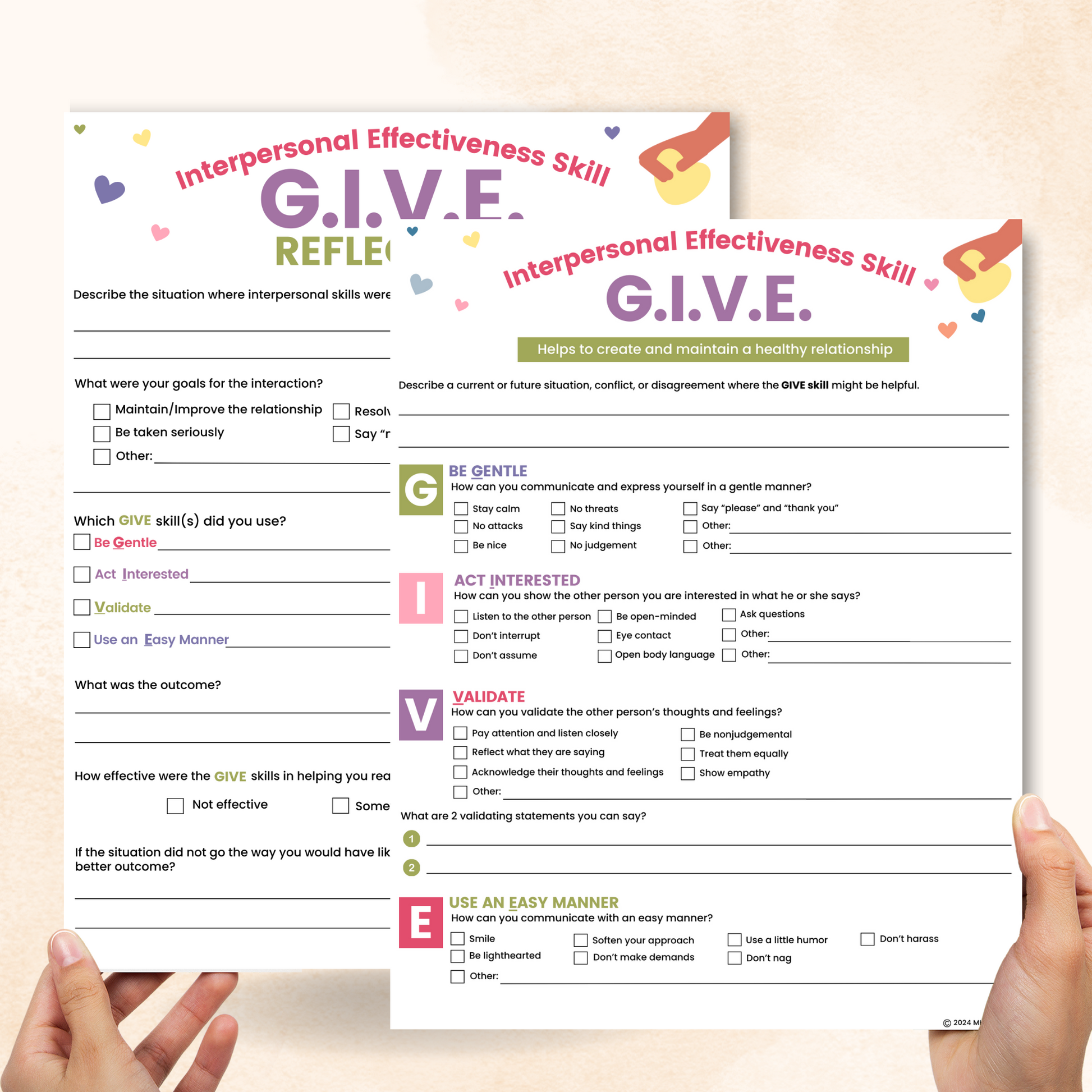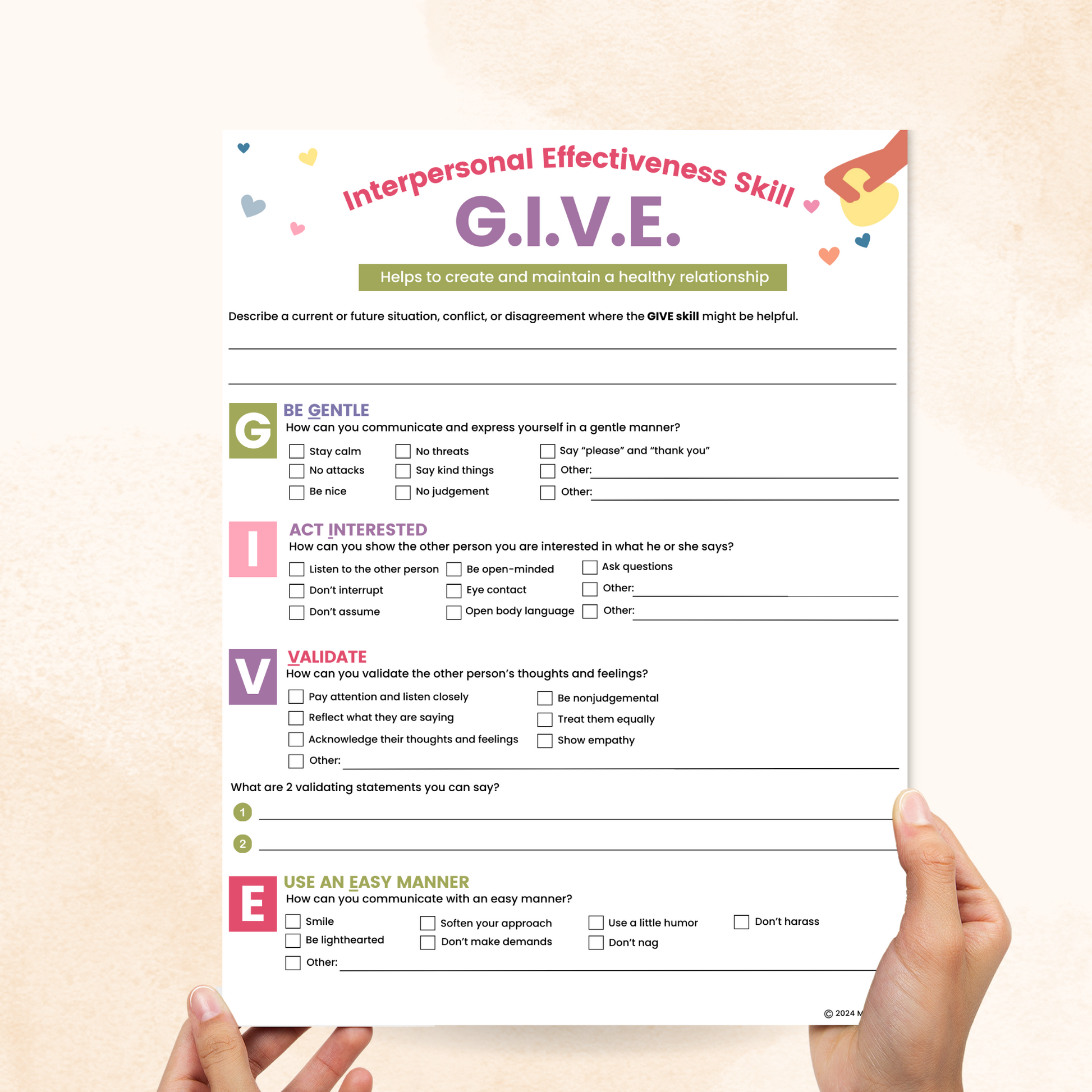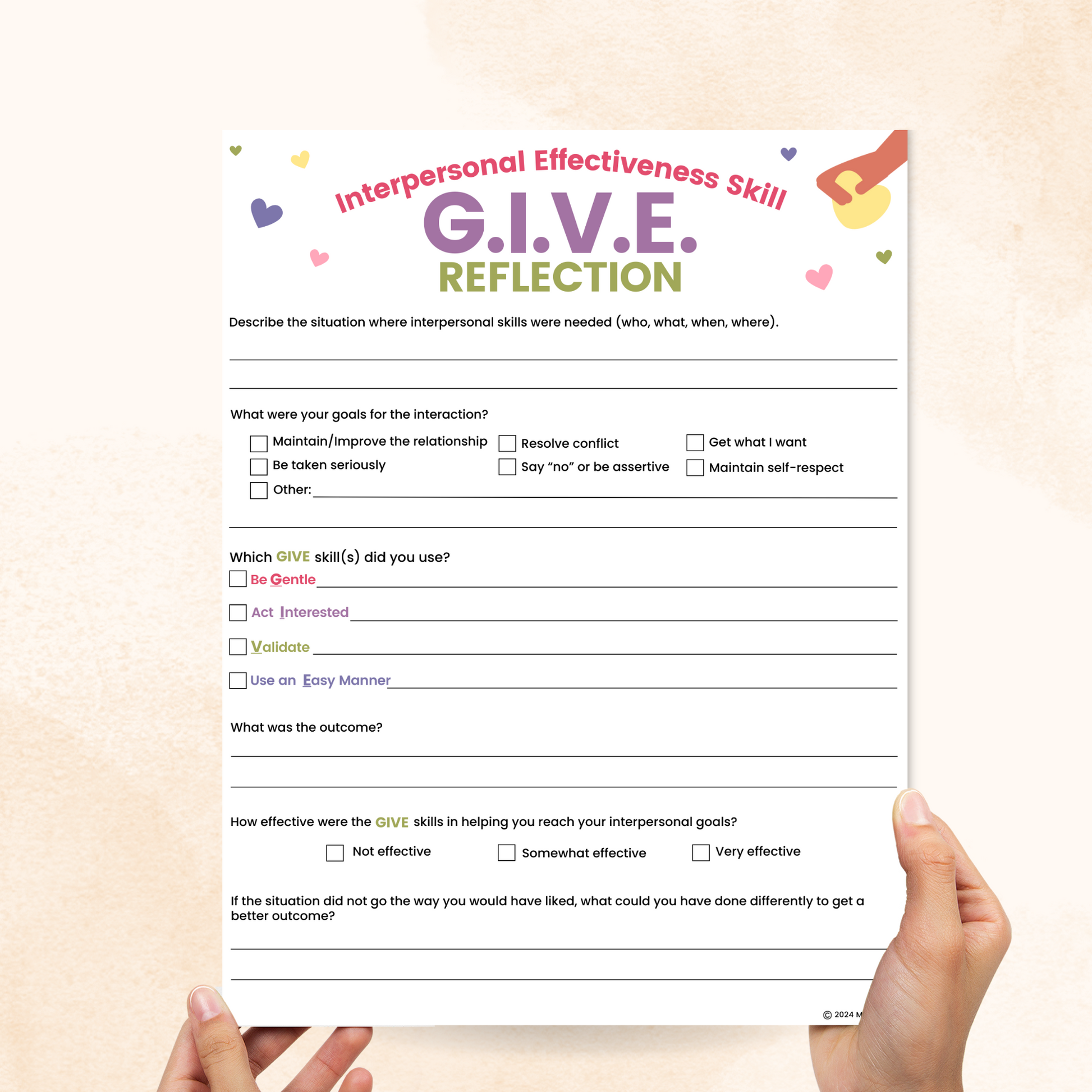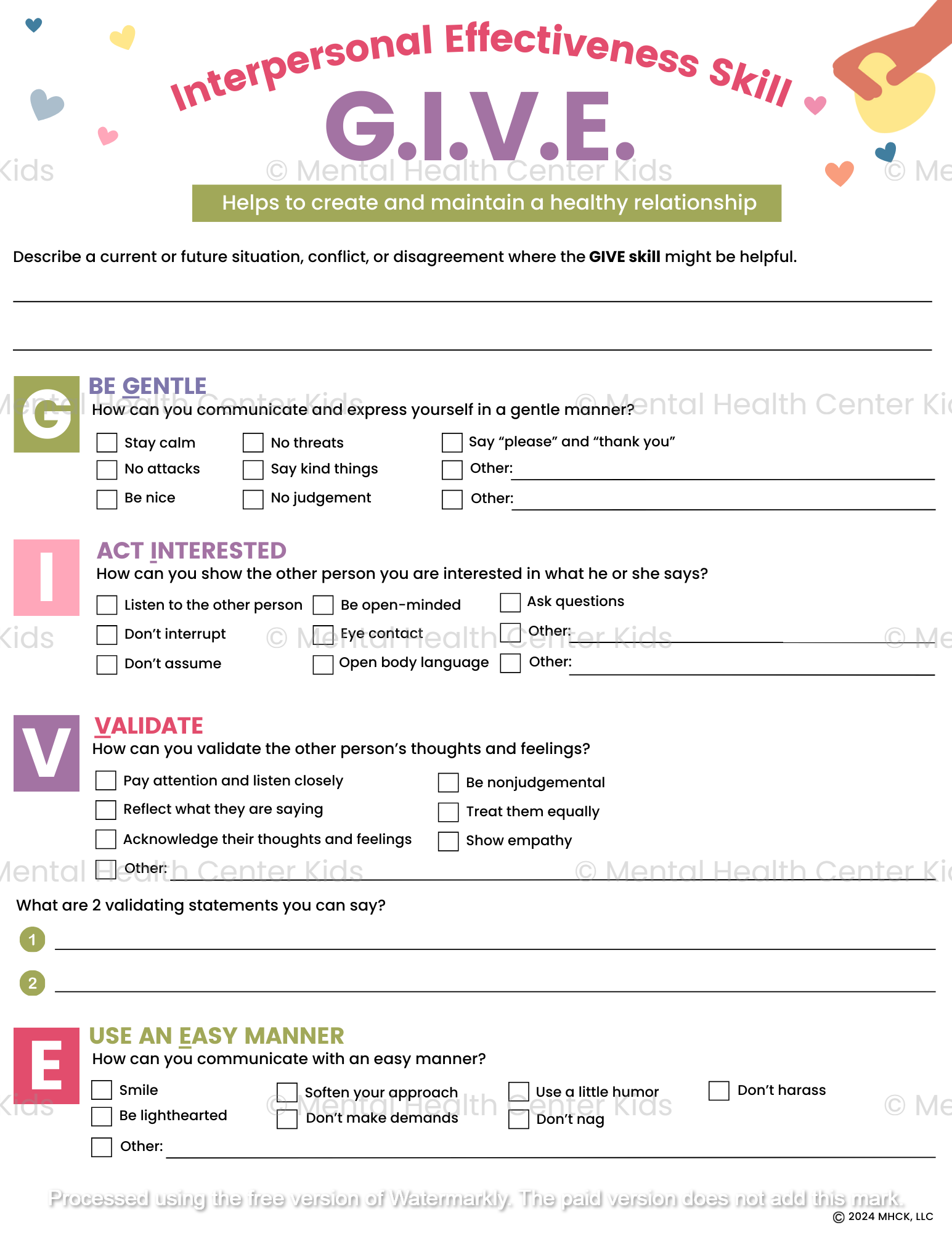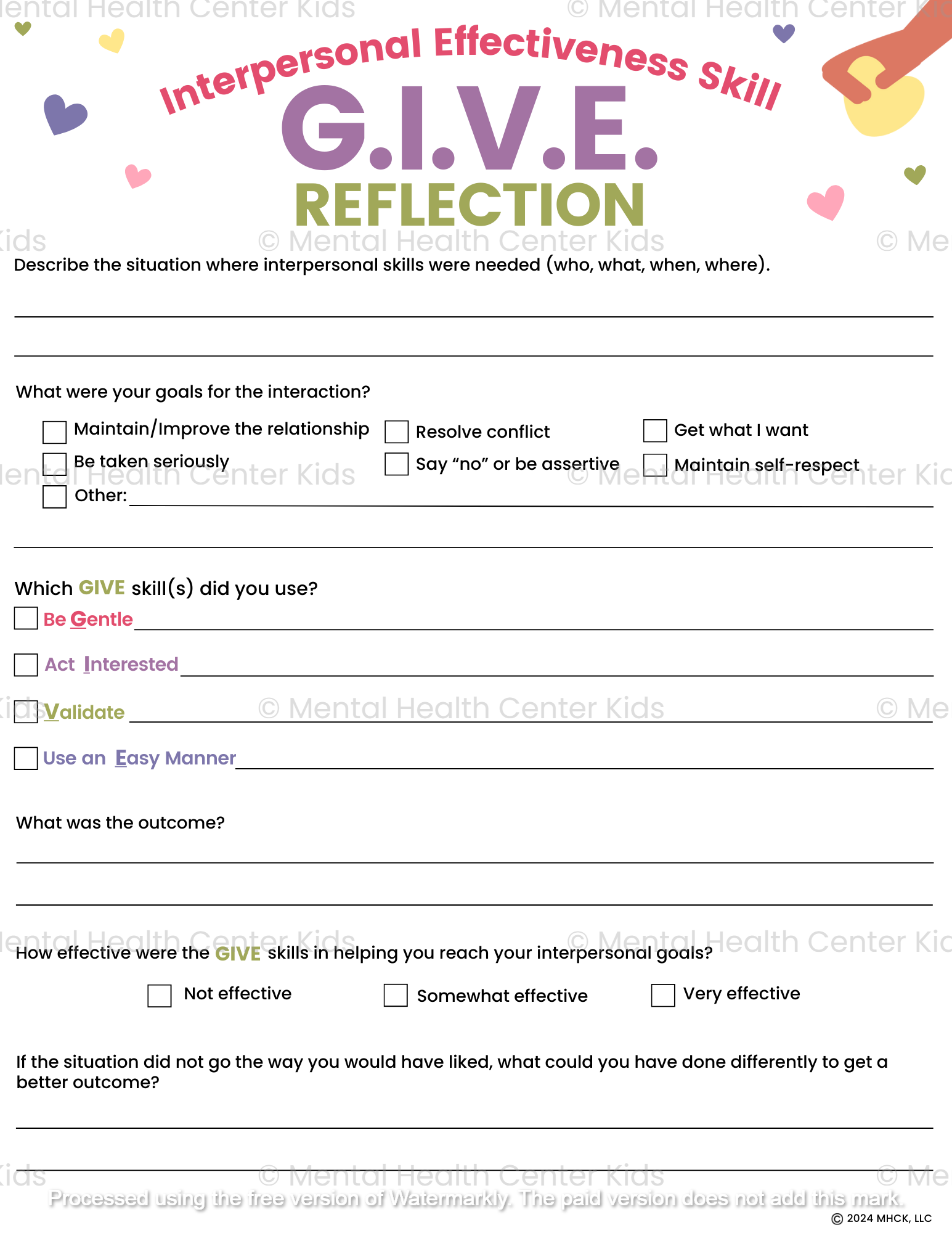DBT GIVE Skill Worksheet
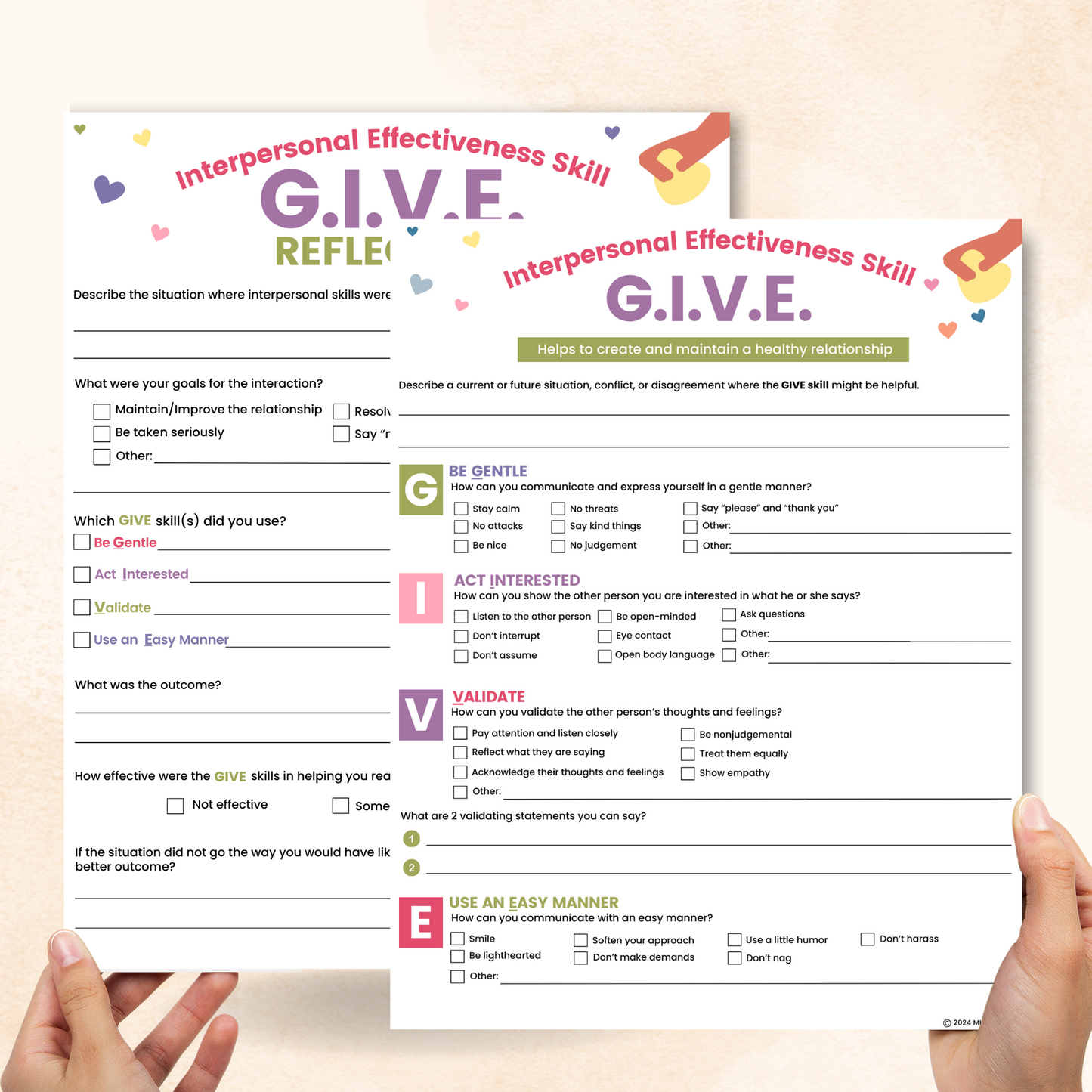
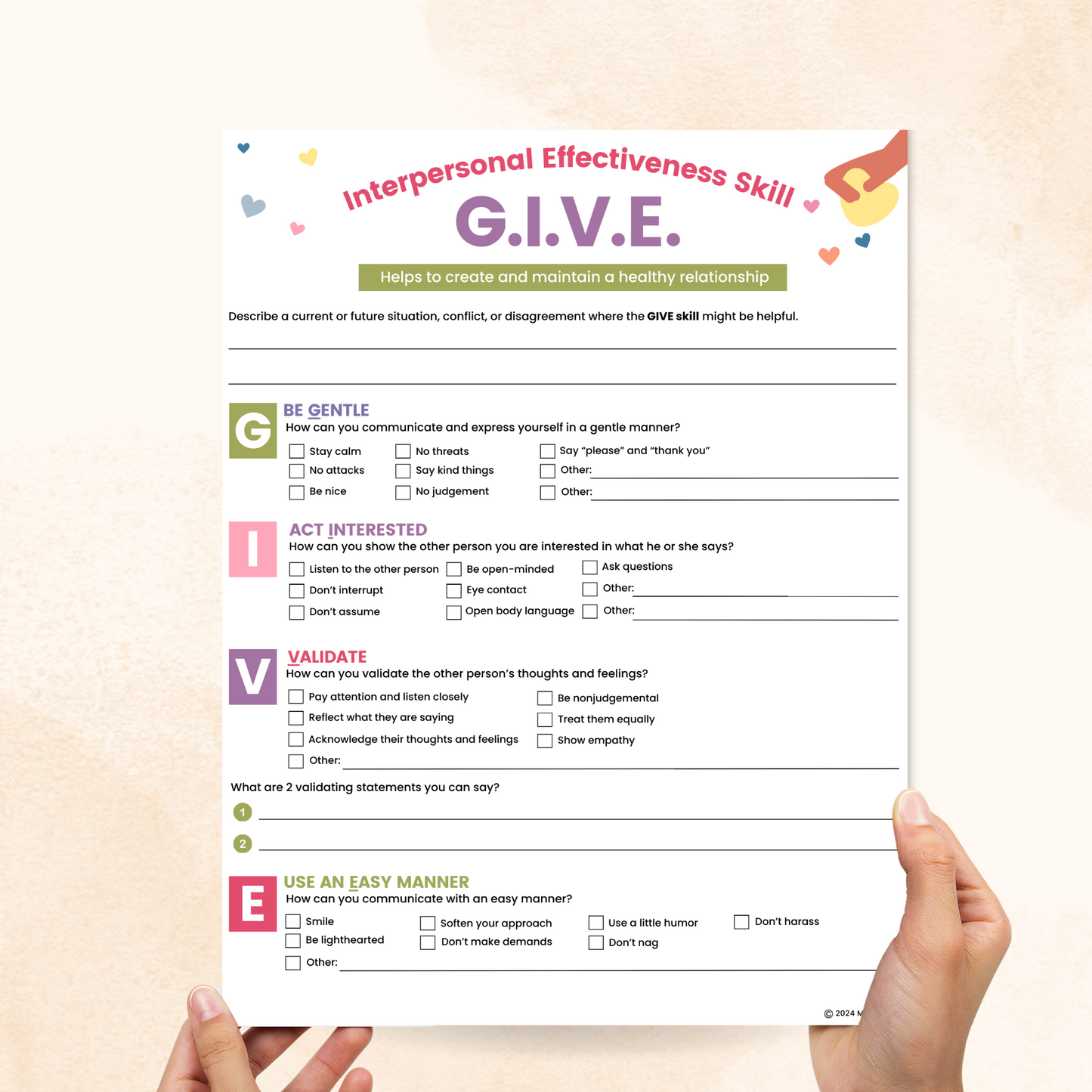
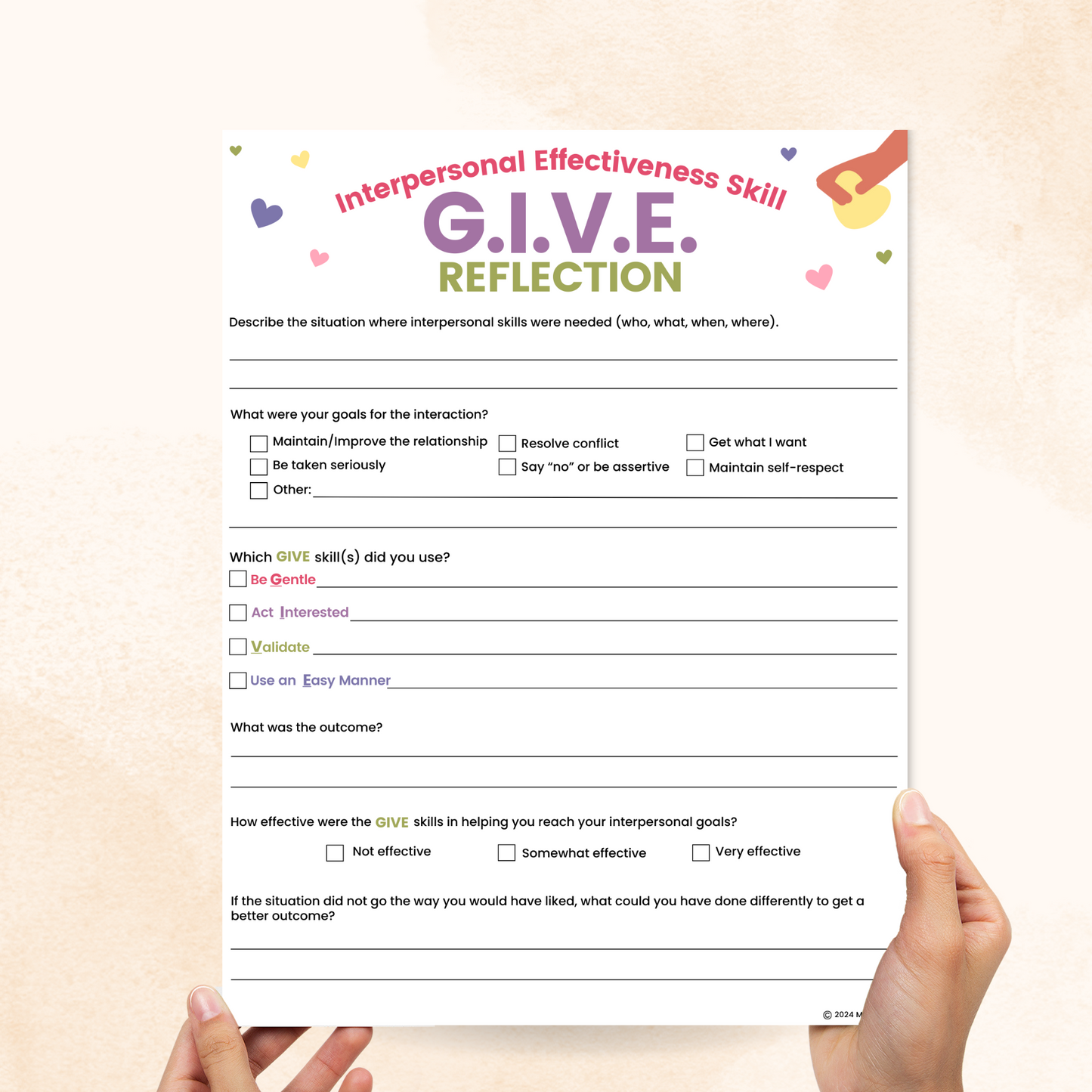
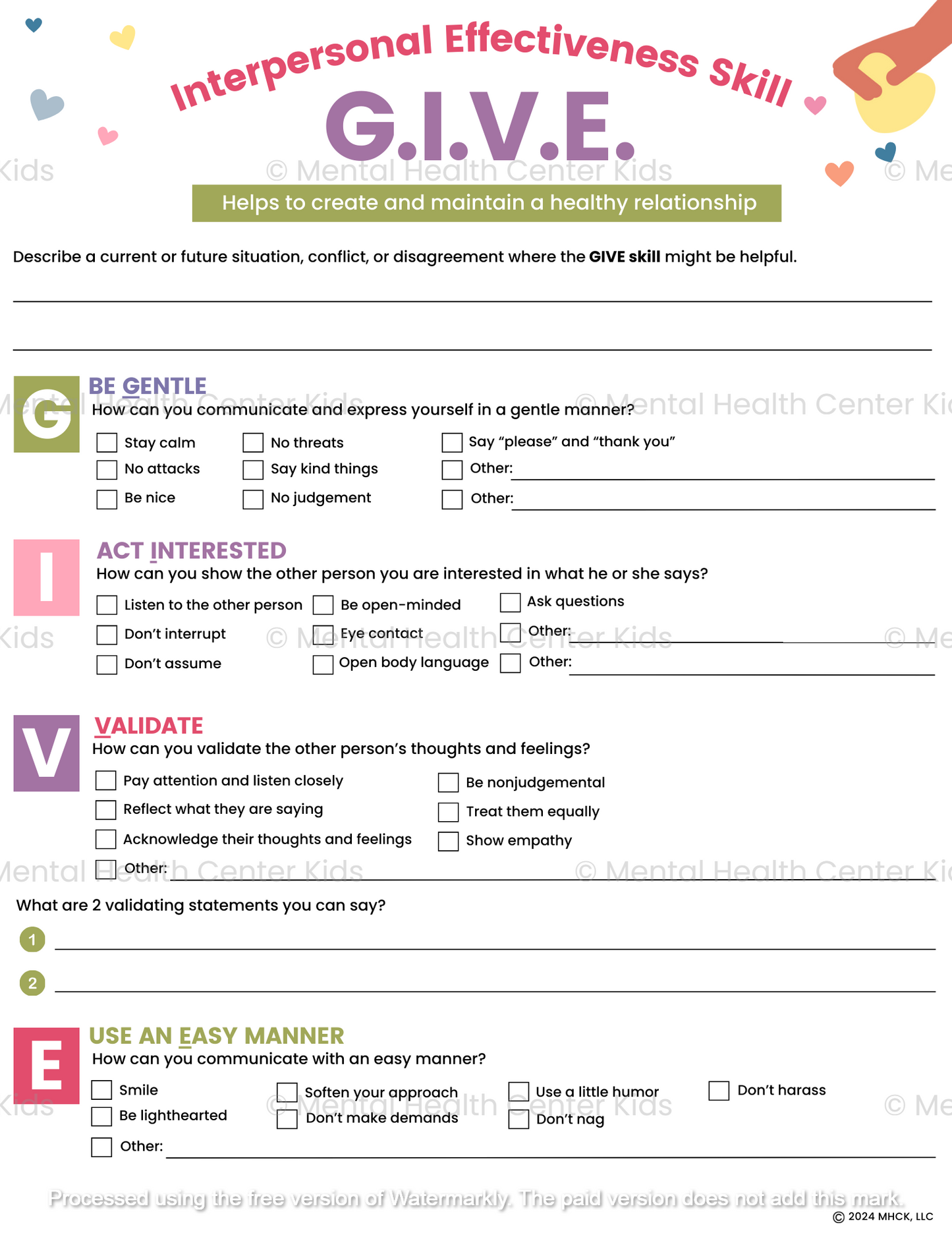
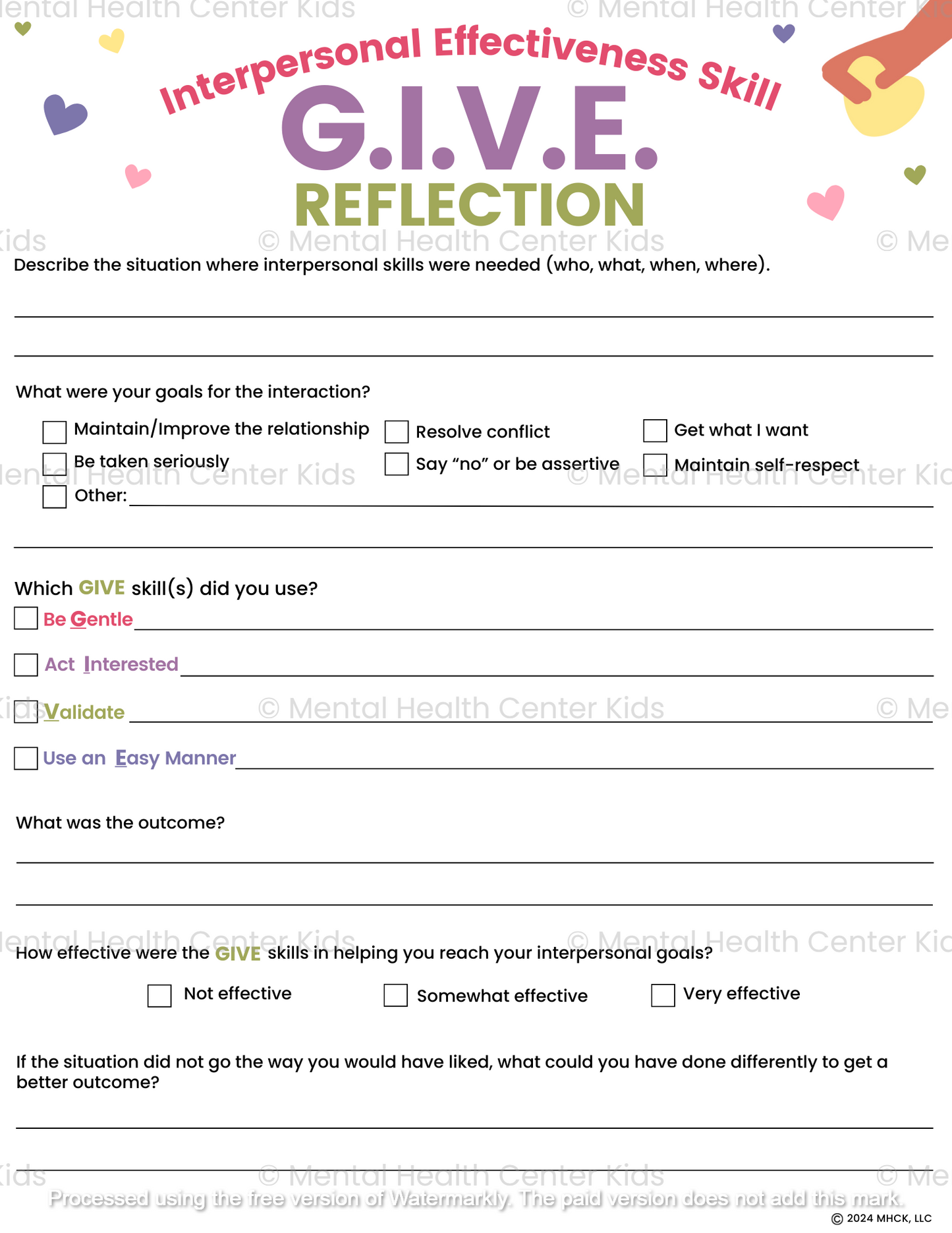
The DBT GIVE skill encompasses (being) Gentle, (acting) Interested, Validating, and using an Easy manner. The main goal of this skill is to build and maintain relationships through positive interactions, which can improve relationships and create happiness. Forming healthy relationships can support good mental health.
The DBT GIVE Skill Worksheet offers two worksheet activities for clients to enhance their understanding and application of the GIVE skills. One activity lets them think of a current or future interaction where they can brainstorm ways in which to apply these skills. Additionally, they’ll be able to write down two validating statements they can say to the other person.
These worksheets provide kids and teens a structured means of reflecting on their social interactions and an opportunity to gain insight into their behaviors. Caring adults can model the skills by engaging in a discussion with their child while keeping the conversation light-hearted and having a good laugh together.
Our DBT GIVE Skill handout is a helpful add-on to these worksheets, and provides a visually appealing summary of this skill.
*This item is an instant digital download. A link to download your files will be emailed to you once payment is confirmed.
Want more resources like this? Check out our full catalog of DBT worksheets and handouts.
References:
- Fareri, D. S., Smith, D. V., & Delgado, M. R. (2020). The influence of relationship closeness on default-mode network connectivity during social interactions. Social Cognitive and Affective Neuroscience, 15(3), 261–271. https://doi.org/10.1093/scan/nsaa031
- Hogan, J. N., Crenshaw, A. O., & Baucom, K. J. W. (2021). Time spent together in intimate relationships: Implications for relationship functioning. Contemporary Family Therapy, 43(3), 226–233. https://doi.org/10.1007/s10591-020-09562-6
- Savage, B. M., Lujan, H. L., Thipparthi, R. R., & DiCarlo, S. E. (2017). Humor, laughter, learning, and health! A brief review. Advances in Physiology Education, 41(3), 341–347. https://doi.org/10.1152/advan.00030.2017
- Quoidbach, J., Taquet, M., Desseilles, M., De Montjoye, Y., & Gross, J. J. (2019). Happiness and social behavior. Psychological Science, 30(8), 1111–1122. https://doi.org/10.1177/0956797619849666
- Instant digital download
- File: Fillable PDF - 2 Pages
- Size: 8.5" x 11"


